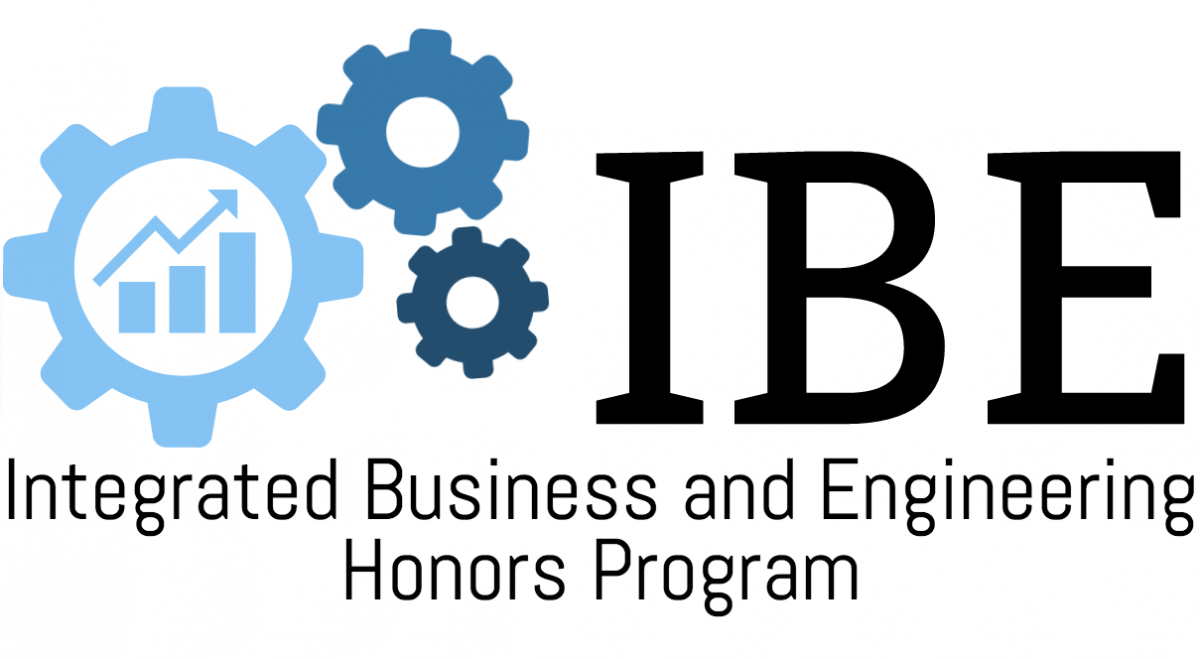Catalog Descriptions
IBE 380 Integrated Business and Engineering Capstone Project I (3) Spring
IBE students work in cross-disciplinary teams of 5 to 6 business and engineering majors with a faculty mentor on the marketing, financial and economic planning, and technical and economic feasibility of actual new product concepts initiated by the course’s corporate sponsors. These sponsors are incubator start-up firms to ensure that the projects have both business and engineering elements. Written reports and oral presentations to sponsors and invited venture capitalists are required. Open only to students in the Integrated Business and Engineering Honors Program.
IBE 385 Integrated Business and Engineering Capstone Project II (3) Fall
IBE students continue to work with the detailed design including the fabrication and testing of working prototypes of their new products designed in IBE Capstone Project I course. In addition to the technical design of the products, detailed financial and marketing plans are required. Written reports and oral presentations to sponsors and invited venture capitalists are required. Open only to students in the Integrated Business and Engineering Honors Program.
Objective
The principal objective of the two-semester, six-credit capstone design course is to use cross-disciplinary teams of IBE business and engineering majors to provide solutions to actual "real-world" problems raised by our corporate sponsors. The course is to addresses technical issues in a business context from an entrepreneurial perspective. Students will apply analytic tools and modeling and simulation techniques to business and engineering applications to meet the needs of their individual. Previous corporate sponsors include:
- Cescaphe Event Group, a boutique wedding planning service
- County Seat Spirits, a craft destillery
- Boeing - American Helicopter Muesum, a flight simulator
- Chatham Financial, a global financial expansion
- FinAbility, a crowdfund to fight domestic violence
During the first semester, students work in teams of 5 to 6 students on the marketing, financial and economic planning, and technical and economic feasibility of new product concepts initiated by the corporate sponsors.
During the second semester, the teams continue with the detailed design, fabrication and testing of working prototypes of their new product. In addition to the technical design of the products, detailed financial and marketing plans are required.
The course is run similarly to the way a business would run their product development teams. By abandoning the familiar "lecture/homework/exam" format that many students are familiar with, the course stresses a more participatory and hands-on approach to learning. By designing new products and developing the companies that will make them, students will expand their skills in: analysis of customer needs, competitive strategy and marketing mix; financial modeling; organization of the supply chain; as well as virtual (computer) modeling; engineering drawing; development of technical specifications; prototyping: testing and measurement; brainstorming; new concept generation, screening and selection; and overall business planning. Students will also improve their written, oral and graphical communication skills and become better decision makers when facing unstructured, uncertain and ill-defined problems.

